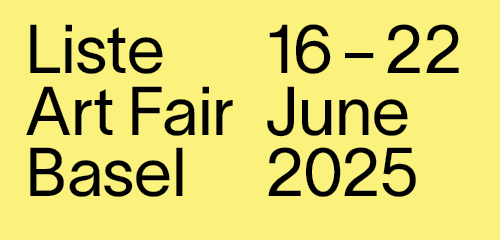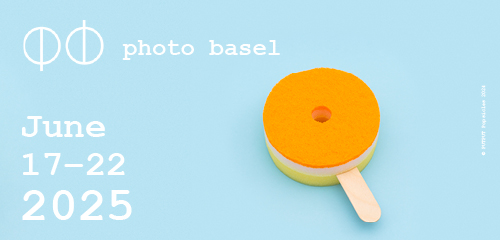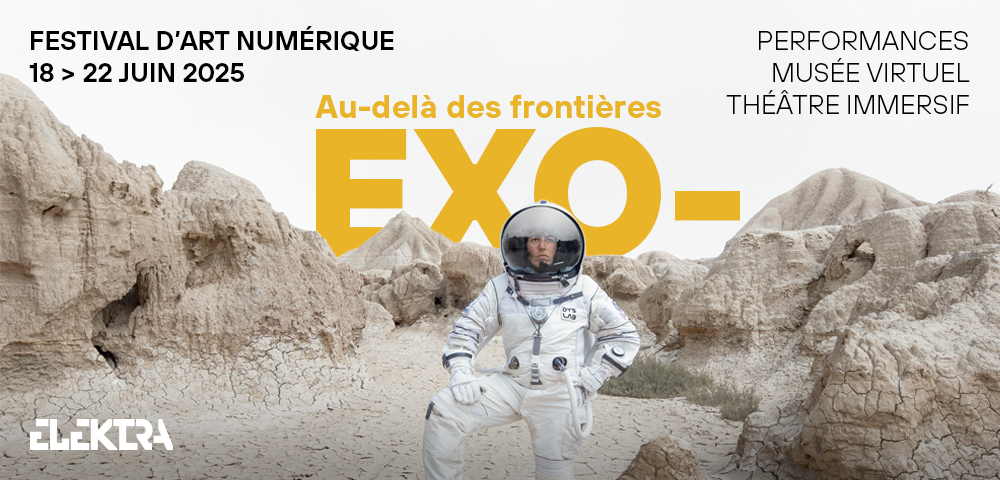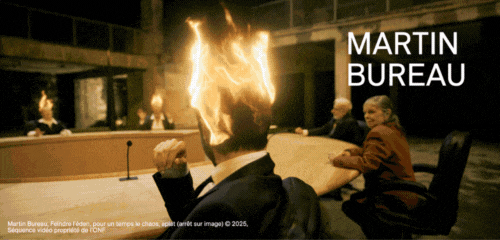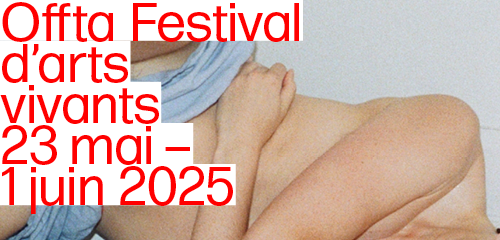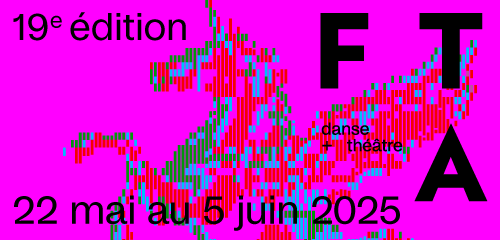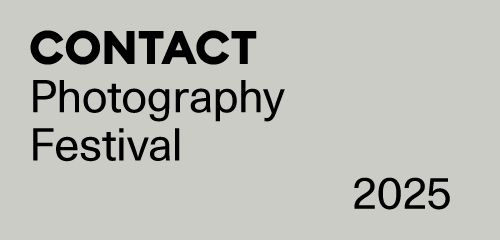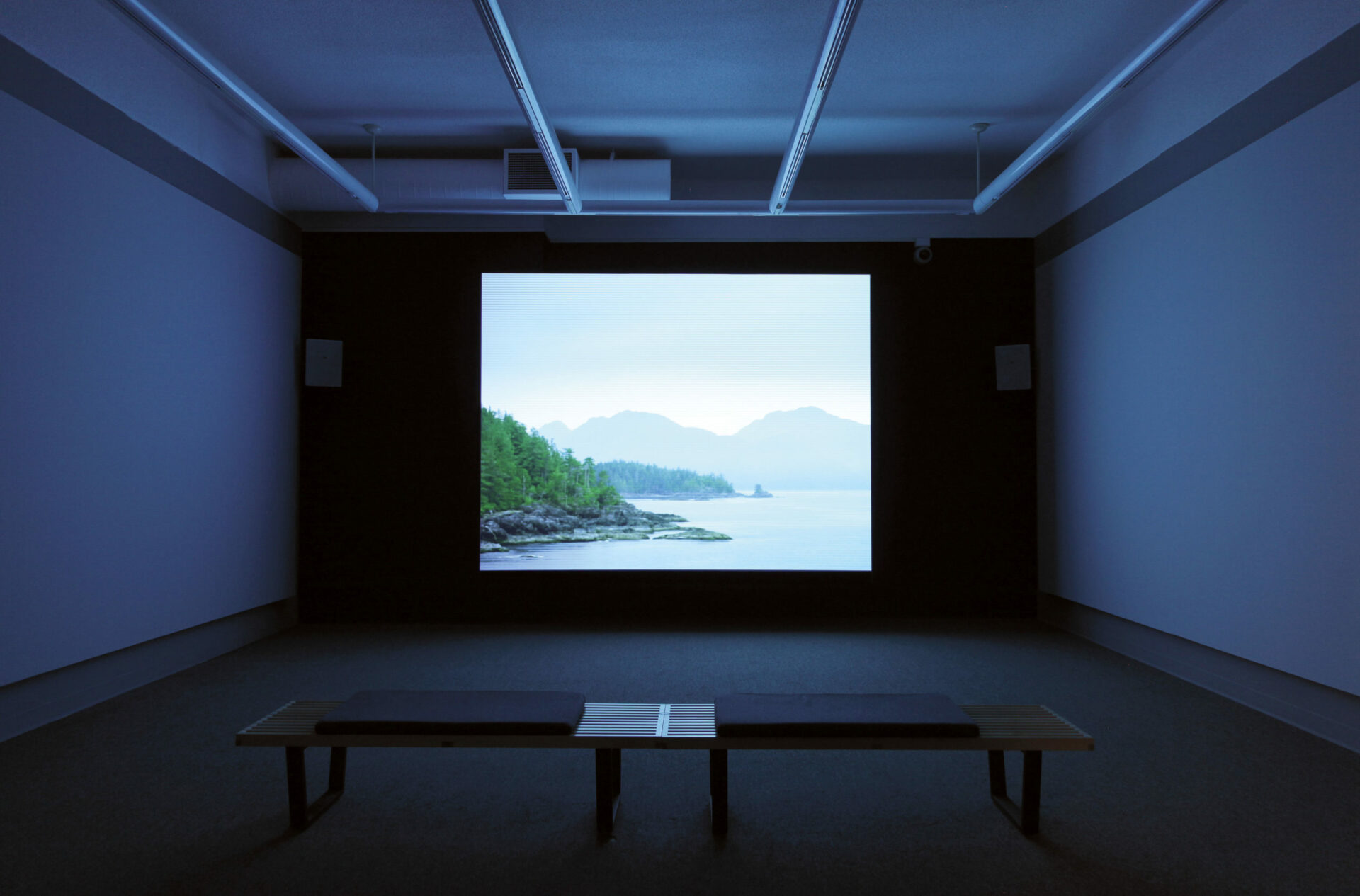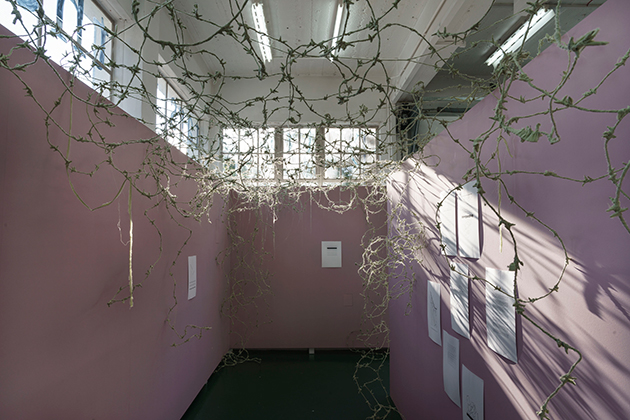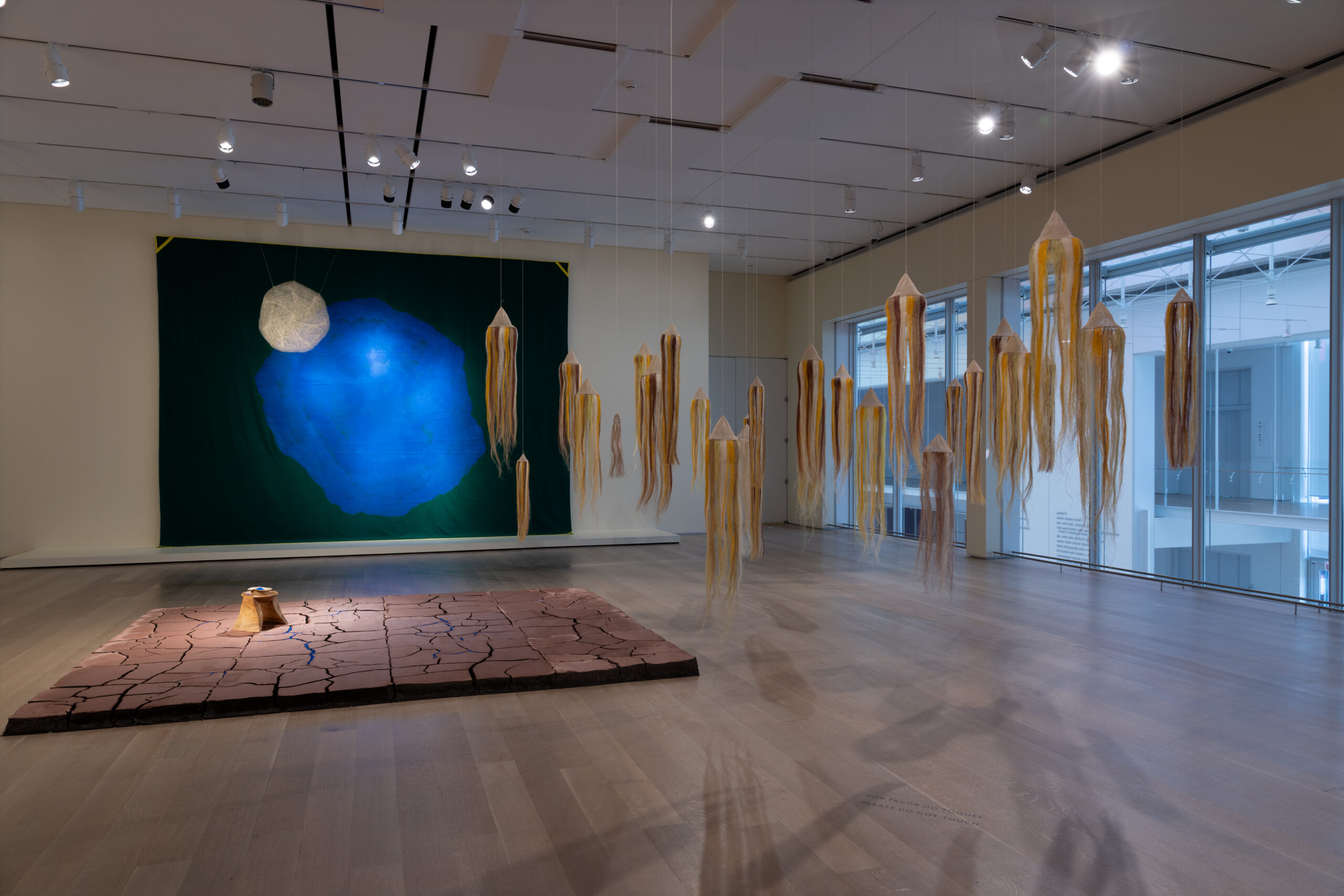
Exhibition view, Art Institute of Chicago, 2025.
Photo: courtesy of the artists
March 29–July 28, 2025
“Gathered by the word of creation, the word that gives life, we come together to remember the beginning.” The booklet that accompanies the exhibition En el principio (In the beginning) at the Art Institute of Chicago (AIC) offers these words as an entrance to a universe—an invitation to step into an earthy world of pigments, milk, plant fibres, and seeds. Translated into Ko’revaju, Spanish, and English, the direct yet deeply felt words in the publication share framing thoughts by the presenting artists, Juliana Góngora Rojas and Matías Quintero Sepúlveda, and by the leaders of the Ko’revaju Indigenous community of the Northern Colombian Amazon who guide them in their process, Juven Piranga Valencia and Yinela Piranga Valencia.
Even before viewers step into the single gallery that houses the various entities and beings that constitute En el principio (In the beginning), curated by Anna Burckhardt Pérez, Neville Bryan Assistant Curator of Architecture and Design, the ethereal and monumental emerald-coloured ceremonial cloth with an Egyptian blue circle draws them in from the institutionally cold design of the AIC. Like a beacon of light and life, the sand-based pigment, which represents motherhood, water, and the cosmic sky in Manto celeste (Celestial Cloth) (2025), grounds the exhibition while also elevating it into another sphere of existence. For the artists and their collaborators, honouring traditional uses of these materials and drawing on their sacred connections to the Colombian territory where Ko’revaju communities live is a unifying force within the overall installation. The cohesiveness of this material practice, grounded in non-extractive, anti-capitalist gestures seeking to resist deforestation, urbanization, and sprawling agriculture dating back centuries, feels highly potent in this moment. Far from the United States government’s recent exhortation to “Drill, baby, drill” is a hope that land-based and traditional practices might remind us of our responsibility to and stewardship of our one and only Mother Earth.
Create your free profile or log in now to read the full text!
My Account




